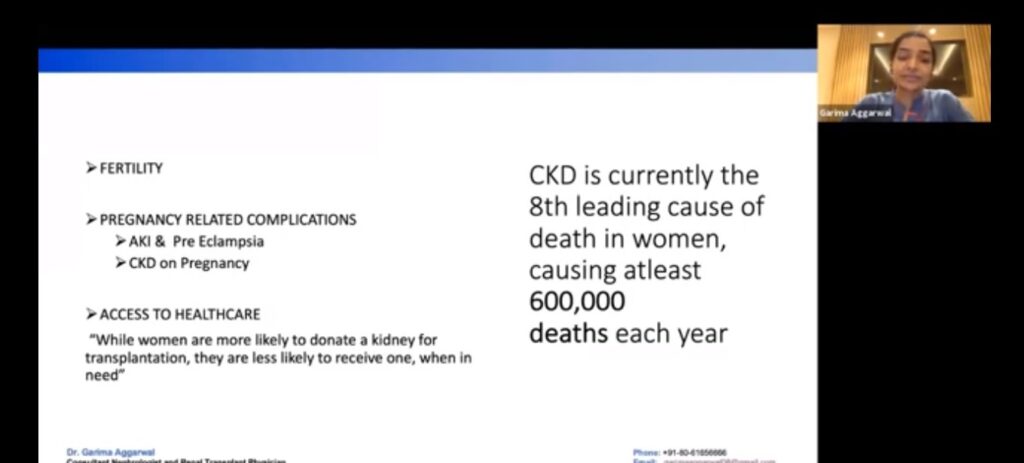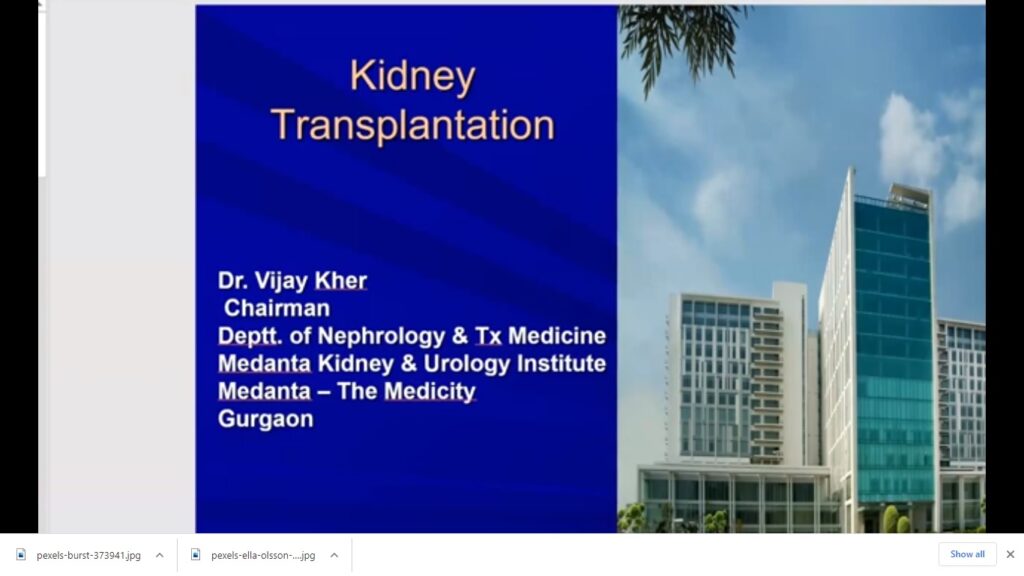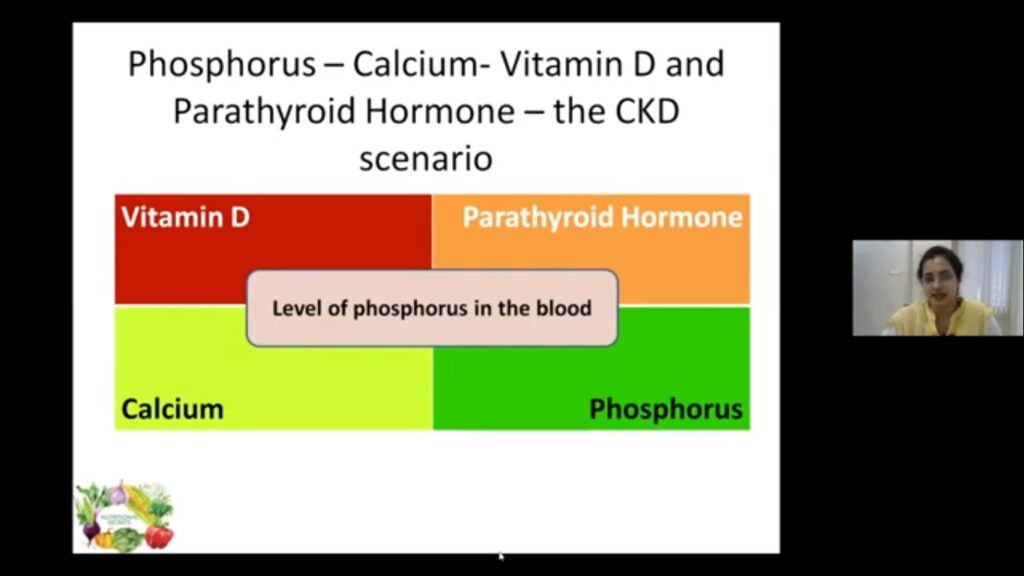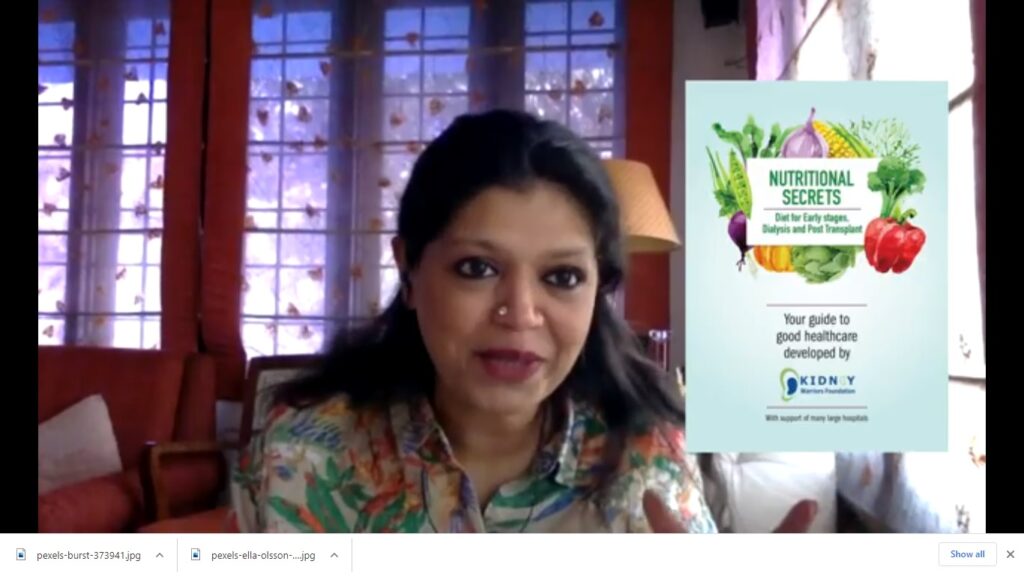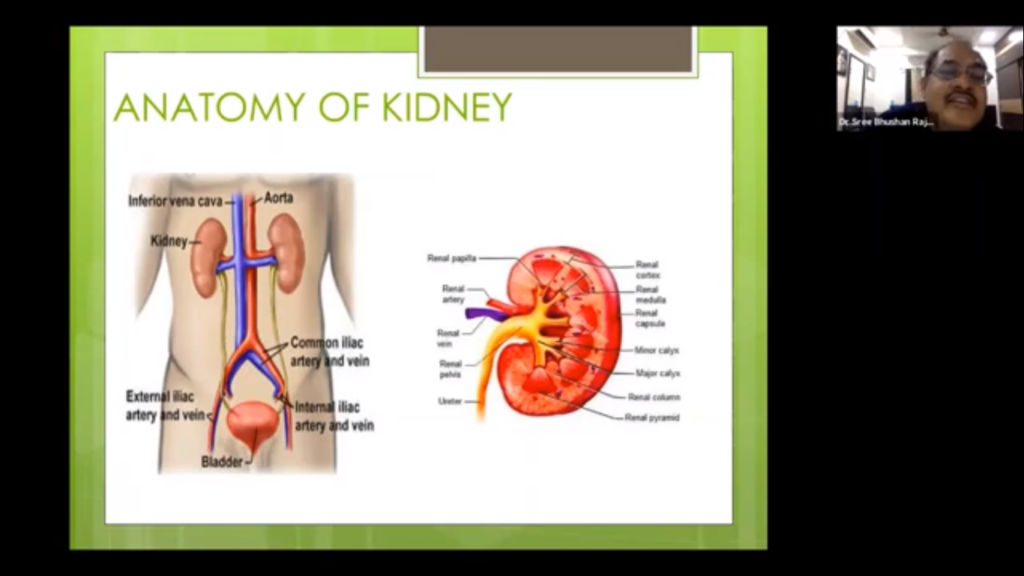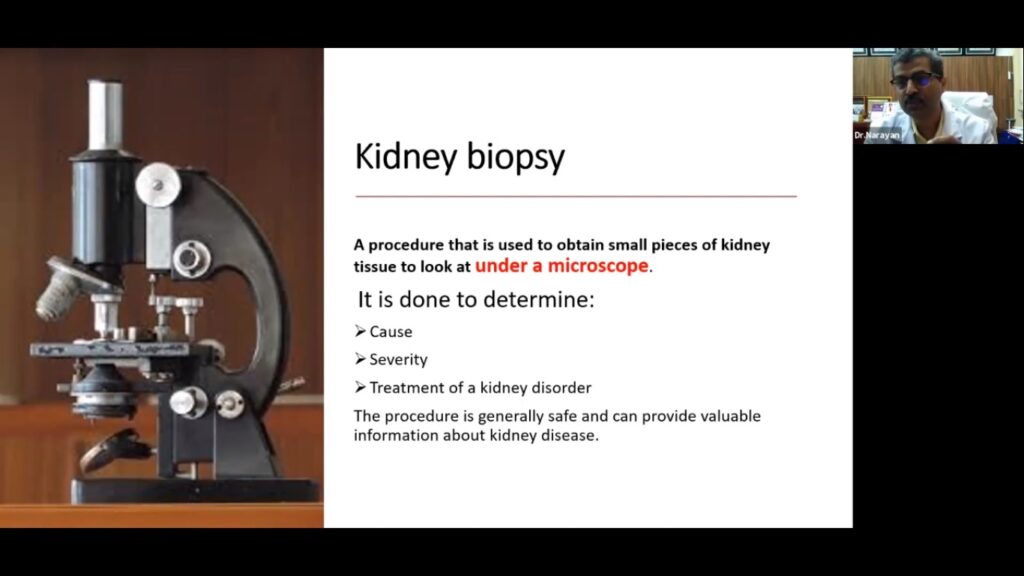Archive November 2020
22 Nov
“THE WARRIORS JOURNAL” – EP8 Pregnancy & Women’s Health in CKD WITH DR. GARIMA AGGARWAL
Women’s Health & Pregnancy in Chronic Kidney Disease Health issues of women do not get as much attention or focus as that of men. Women themselves often ignore symptoms of disease and do not heed warning signs issued by the body. The disparity in access to health care by men and women is proved by […]
READ MORE22 Nov
“THE WARRIORS JOURNAL” – EP4 Post Transplant Care & TAC Levels WITH DR. VIJAY KHER
Post Transplant Care & Relevance of Tac levels Patients have many doubts regarding post-transplant care, especially with regard to ‘tac level’, a concept encountered during post-transplant follow-up. KWF organized a session on 4th September, 2020, with Dr. Vijay Kher, Chairman, Nephrology, Medanta Kidney & Urology Institute, New Delhi, to address concerns and queries related to […]
READ MORE22 Nov
Nutritional Secrets Diet Video Series: Potassium in CKD
Potassium – The ‘King’ by Suneetha Rao, Chief Dietician, NU Hospitals, Bengaluru Potassium is an important mineral, and a key component of diet, that has various functions. The most important function of potassium is regulating the heartbeat. Abnormal potassium level will require immediate management with medication, while long term management can be done by modification […]
READ MORE22 Nov
Nutritional Secrets Diet Video Series: Sodium in Kidney Disease
Sodium – the Key Trouble Maker by Uma Maheswari, Consultant Dietician This video deals with the relationship between salt and kidney disease and how restricted salt intake can help maintain kidney function in patients with CKD. Ms. Uma describes the problems caused by excess sodium and how to regulate sodium levels in the blood by […]
READ MORE22 Nov
Nutritional Secrets Diet Video Series: Carbohydrates and Proteins – Macronutrients
Carbohydrates and Proteins – Macronutrients by Shalini Arvind, Clinical Dietician, Fortis Hospital, Bengaluru In this video, Ms. Shalini describes the complementary role of carbohydrates and proteins, the foods that constitute the larger portion of a meal. While carbohydrates generate energy, proteins build the muscles and cells in the body.
READ MORE22 Nov
Nutritional Secrets Diet Video Series: Phosphorus in CKD
Phosphorus – An Important Mineral by Suneetha Rao, Chief Dietician, NU Hospitals, Bengaluru Ms. Suneetha talks about the management of phosphorus that has many functions. She shows us how a higher consumption of phosphorus rich food affects the body, resulting in bone disease. Watch the video to understand the correlation between calcium and phosphorus, and […]
READ MORE22 Nov
Introducing the Nutritional Secrets Diet Videos
KWF launches a series of videos focusing on Diet Management in CKD. KWF felt the pressing need to disseminate the information in our book Nutritional Secrets among a wider audience, so that a larger number of patients and caregivers can benefit from the abundant information it contains. To achieve this goal, Nutritional Secrets is being […]
READ MORE21 Nov
Preview to Kidney Diet by Anjali Uthup Kurian, Founder, Motivational Speaker – KWF
Anjali views Nutritional Secrets as a fantastic book for kidney patients to explore in order to enjoy their diet with good choices. She explains the importance of looking beyond restrictions and identifying substitutes to make meals interesting.
READ MORE7 Nov
“The Warriors Journal” – EP7 Genetic Kidney Diseases With Dr. Sree Bhushan Raju
Genetic Kidney Diseases: Early signs and tests Genetic diseases can affect many members of a family over generations. Learning to catch early signs of the disease can enable effective treatment, since it can help to change the course of the disease or prevent its advancement. In a webinar moderated by Anjali Uthup Kurian, Dr. Sree Bhushan […]
READ MORE6 Nov
“The Warriors Journal” – EP6 KIDNEY BIOPSY WITH DR. NARAYAN PRASAD
Understanding Biopsy in-and-out An interesting webinar on the diagnostic procedure known as biopsy was held on September 9, 2020. The guest speaker for the event was Dr. Narayan Prasad, Professor, Department of Nephrology, SGPI, Lucknow, and the event was moderated by Maryann Manasseh and Mr. Anand Lal Banerjee. Dr. Prasad interacted with participants in Hindi […]
READ MOREALL CONTACTS
- B 504, Vrindavan Co-op Housing Society, Goregaon Link Road, Mulund (W), Mumbai – 400 080
- +91 81082 82100
- kidneywarriors.organisation@gmail.com
SUBSCRIBE
Stay connected with KWF by subscribing to our newsletter for the latest updates and news.
- Copyright © 2020 Kidney Warriors Foundation


